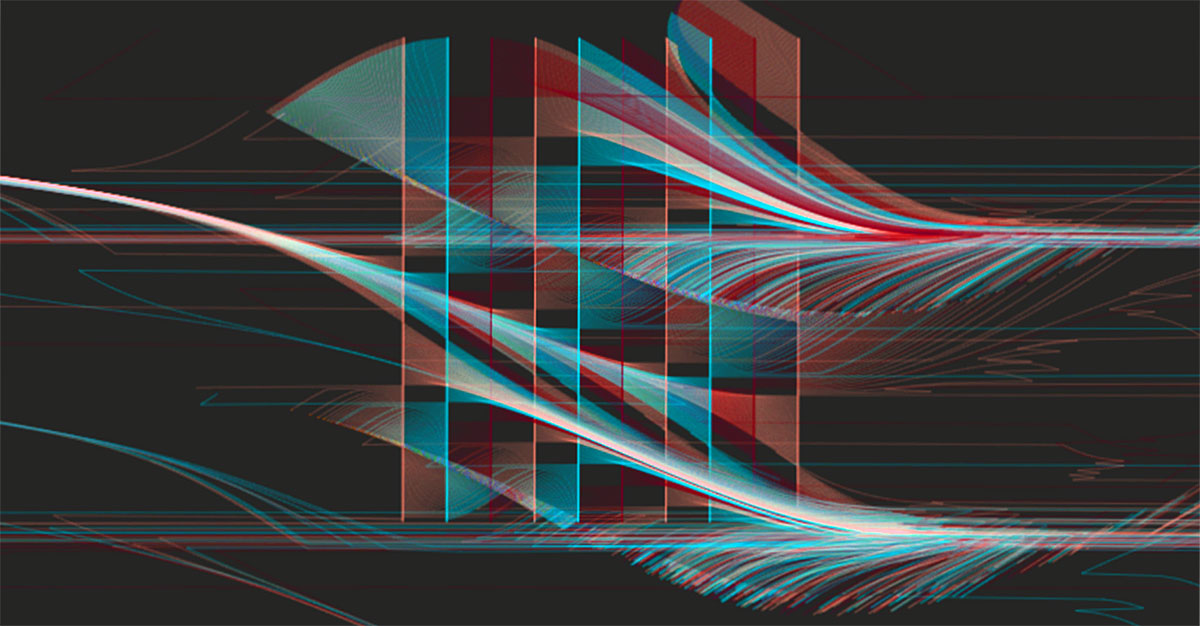Certificate Program
Data Visualization
A unique blend of science, technology, art, and design
The Data Visualization certificate teaches individuals how to use effective design principles and analytics methodologies to communicate complex data-based information in ways that are easier for audiences to understand and use.
What You’ll Learn
Participants learn how to relate artistic choices and personal aesthetics in service of sound scientific principles and representation. Data visualization uses coding skills and information theories to communicate facts and insights, simplifying hard concepts for wider audiences.
“In the age of social media, audiences are no longer content with being passive. Interactivity, usability, and visual simplicity are here to stay – especially as it pertains to science, analytics, and storytelling” according to program lead Seth Crider. “To communicate all of this information clearly, and to the widest possible audience, information needs to be communicated with good design.”
Students will learn to illustrate data stories, develop technological prowess with data processing languages and techniques, answer scientific questions, and communicate the meaning behind data through visual representation. Ethical issues behind the production, promotion and accessibility of data will be emphasized.
- Earn 18 credits that can be applied to a Bachelor’s degree at PCA&D or beyond
- Tap into college learning resources and advisors
- Software from Adobe Creative Suite, Microsoft, and Google professional tools
- Build your network and exposure through campus events and career opportunities
- Join the PCA&D alumni network
Required Courses
18 Credits | Available Online
DATA 101 Foundations for Information Design
In this course, the history of data visualization, and its key periods of discovery and transformation will be covered. Students will build literacy in reading data-informed visuals, as well as exploring the tools that can create them. An emphasis will be placed on ethical and moral implications of data collection and utilization.
Credits : 3
DATA 102 Data Analytics Methodologies
This course is an introduction to methods that allow for formulating observations from datasets. Popular platforms and programming languages will be leveraged to prepare students for the larger world of analytics. Topics will include how to format tables, collect data, prepare surveys, and interpret statistics. Concepts will be reinforced by personally driven data projects.
Tools: Tableau, OpenRefine, Excel, Carto, Gephi
Credits : 3
DATA 301 Information Design Project Studio
In this course, students will start with a singular area of interest and use their skills in the full life cycle of data collection and visualization to build a large-scale cumulative project. At the end of this course, participants will have a highly refined portfolio piece(s) that will showcase a diverse set of skills and interests.
Tools: Python, Excel, R, Tableau, OpenRefine, Javascript, QGIS, Carto, Gephi
Credits : 3
Select 3 of these 4 courses
DATA 201 Data Manipulation and Documentation
In this course, students will explore methods for data cleaning and pulling information from online sources and interfaces. Students will learn to document their efforts, deal with imperfect data, and use popular data programming languages to create static or interactive graphics. A particular emphasis will be placed on answering key data questions.
Tools: Python, Excel, R, Tableau, OpenRefine
Credits : 3
DATA 202 Interactive Visualization
In this course, students will learn web-based tools and programming languages to create custom visualizations. Projects will fully immerse users in information storytelling or explore mathematical themes.
Tools: Javascript
Credits : 3
DATA 203 Information as Material, Form, and Installation
Students will experiment with popular art-based materials to create objects, sculptures, and mixed-media works that communicate data observations. Themes of space, color, and concept will be explored culminating in a final installation or design piece.
Credits : 3
DATA 204 Spatial Analysis and Map Making
This class is an introduction to building, analyzing, and creating maps that tell a story through data and design principles. Students will learn to utilize popular map-making platforms for creating graphics that illustrate spatial relationships which can be used as a vehicle for advocacy, marketing, and various creative endeavors.
Tools, QGIS, Carto, Tableau, ArcGIS, R, Javascript, Python
Credits : 3

Career Opportunities
Certificate-holders will gain experience that’s needed in a diverse array of industries like journalism, financial services, health services, community and nonprofit leadership, marketing, advocacy, government, cartography, library and museum curation, as well as traditional data science and software development roles.
Who Should Enroll
The best fit is with people who thrive in the intersection of analytical thinking and creative expression. College experience is not a prerequisite for this program, but a fondness for working with data and visual design is essential. High school and college graduates, veterans, professionals, and entrepreneurs will be among the students who bring their diverse perspectives to the program.
Cost
$1,157 per credit hour
A total of 18 credit hours are required. Credits will be billed per course.
How to Register
Enrolling in one of PCA&D’s Certificate Programs is simple. Confirm your intent to pursue one of our certificates by filling out an application.
If you have any questions regarding mapping out a plan, upcoming class schedules, or completing your certificate, please contact an Admissions Counselor at 717.396.7833 ext 1001 or email admission@pcad.edu.
